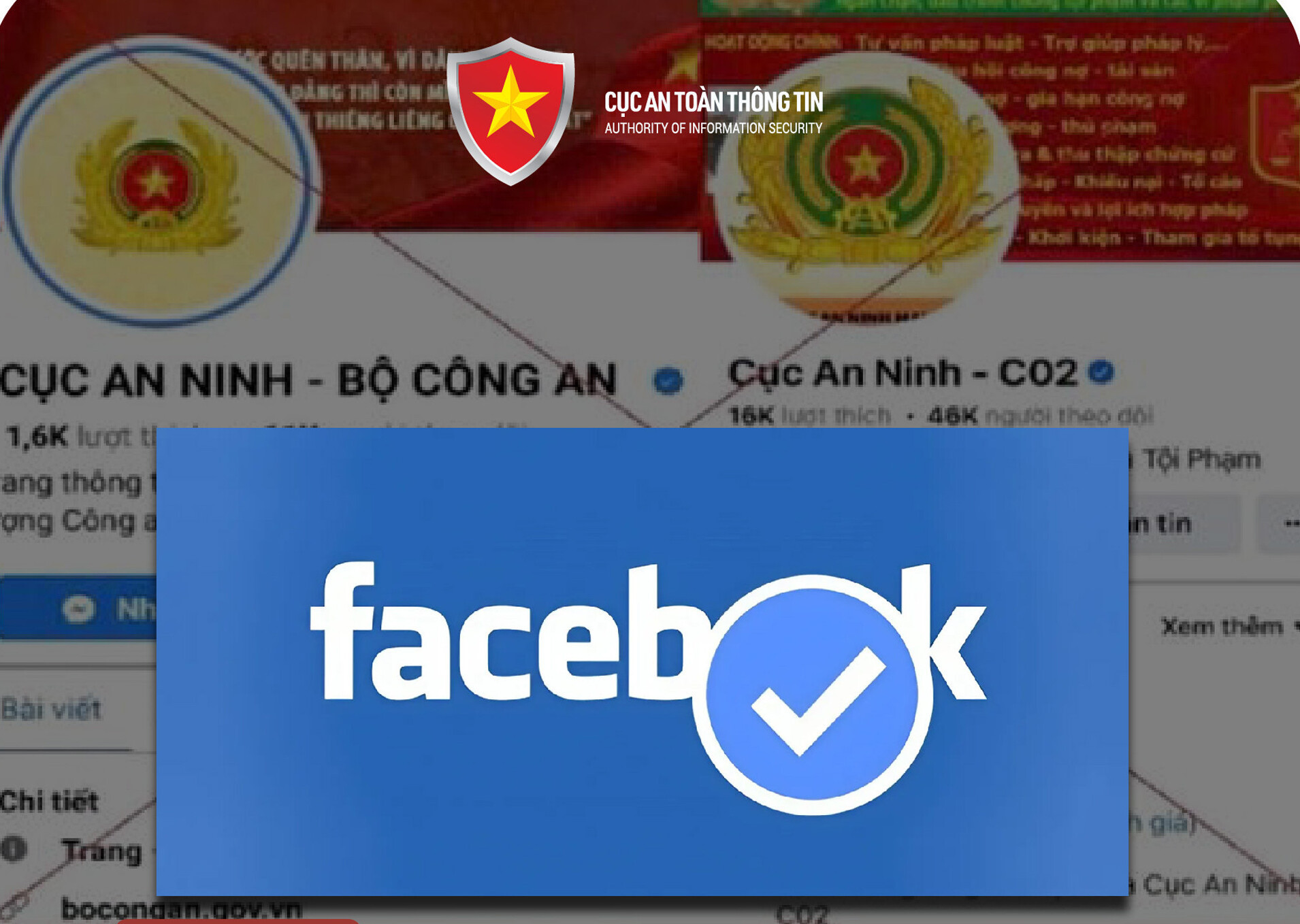
The information security warning system at canhbao.khonggianmang.vn reported that most of the 300-400 weekly complaints from users are cases where individuals forge websites of state agencies, big brands, commercial banks and e-commerce platforms to trick people out of money.
September 30-October 6 week’s report showed that impersonation remained the major type of scam. Scammers impersonated agencies belonging to the Ministry of Public Security (MPS), Viettel (tech firm) and the organizers of nonexistent contests to appropriate individuals’ assets.
Fake Facebook accounts
According to the Ministry of Information and Communications’ (MIC) Authority of Information Security (AIS), some websites impersonating MPS’ agencies have appeared on Facebook recently.
The forged websites displayed videos and posts warning against types of scams to appropriate assets. Scammers even advertised the services which help take back the money appropriated. To convince netizens, they promised that they would only collect fees for services after they get lost money back.
The serious problem is that the forged websites have blue ticks, which allows them to easily swindle people, especially those who have lost money before and wanted to get money back.
The ads on fake Facebook accounts prompted people to contact scammers and remit money to pay for the service of getting money back.
Advising social network users to be cautious about fake Facebook websites, AIS and MPS stressed that people must not contact the websites advertising that they can help get money back or similar services.
They have also been told not to access the URLs and download the apps with unclear origin; not to implement requests by unidentified subjects; and not to share personal information under any form.
Impersonating Viettel’s officers
Ha Tinh police has filed charges against five individuals and detained them for swindling and appropriating people’s assets.
Since May 2024, the scammers have used ‘trunk’ simcards (inactivated simcards) to call people to seek victims.
When people picked up the calls, the scammers introduced themselves as Viettel’s officers and said that the victims won big prizes, such as cash or SH motorbikes under gratitude programs. They told the ‘prize winners’ to pay fees by buying phone scratch cards to receive the prizes.
After victims bought cards and provided codes to scammers, they will transferred the codes to another subject to sell and divide the amounts of money they appropriated.
AIS has advised people to be cautious about the messages and calls which inform about prizes and awards, or the calls inviting to participating in sale promotion programs of some brands.
They should verify information about the subjects by contacting official information channels; and not follow the instructions and requests by scammers; not transfer money to strangers; not provide information to strangers and not access unfamiliar URLs.
If people have a suspicion about the subjects who call them, they need to inform appropriate agencies immediately, or contact the consumer right protection organizations to seek help and protection.
Enticing people to vote for competitions
The Buon Ho Town police have recently joined forces with the Cyber Security and High-Tech Crime Prevention Division belonging to Dak Lak Police to successfully crack down and arrest two individuals for ‘swindling to appropriate assets’ on cyberspace.
Since February 2024, scammers have created a fake website and called people to access the website to vote for competitors at an international painting contest. They sent a link with the domain name of ‘weebly.com’ and messages asking people to vote via Messenger app.
When users clicked the link and entered user names and passwords, their information would be saved, which would allow scammers to access victims’ Facebook accounts, and then impersonate accounts’ owners to send messages to their friends and relatives to borrow money. They would ask friends and relatives to transfer money to certain accounts and appropriate the money.
The advice is that people should not access URLs and download the apps with unclear origin; not to implement the requests from strangers; not to provide personal information (bank accounts and account passwords).
Van Anh